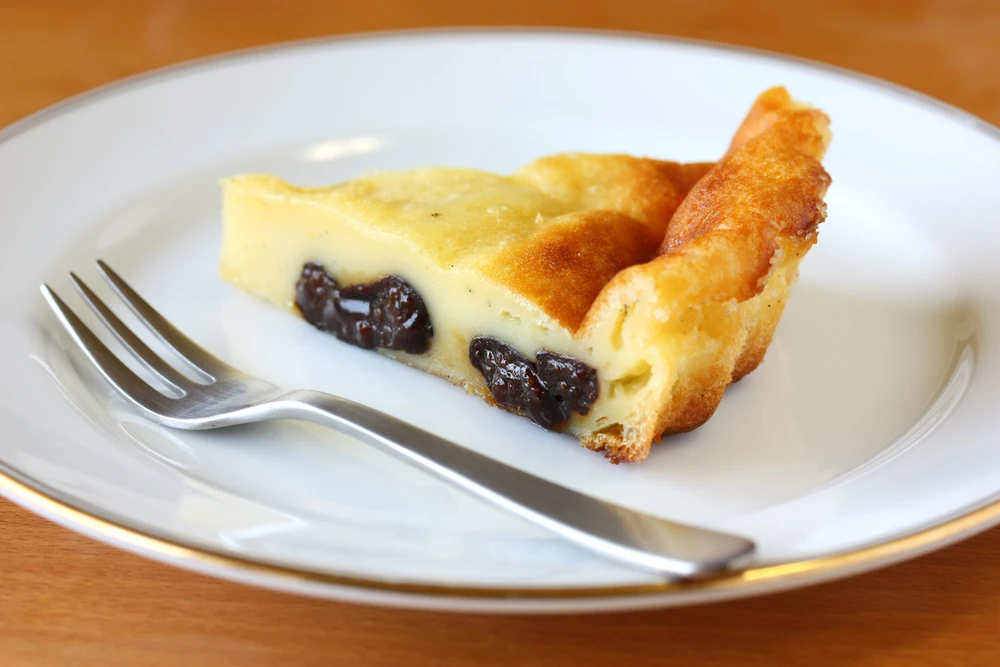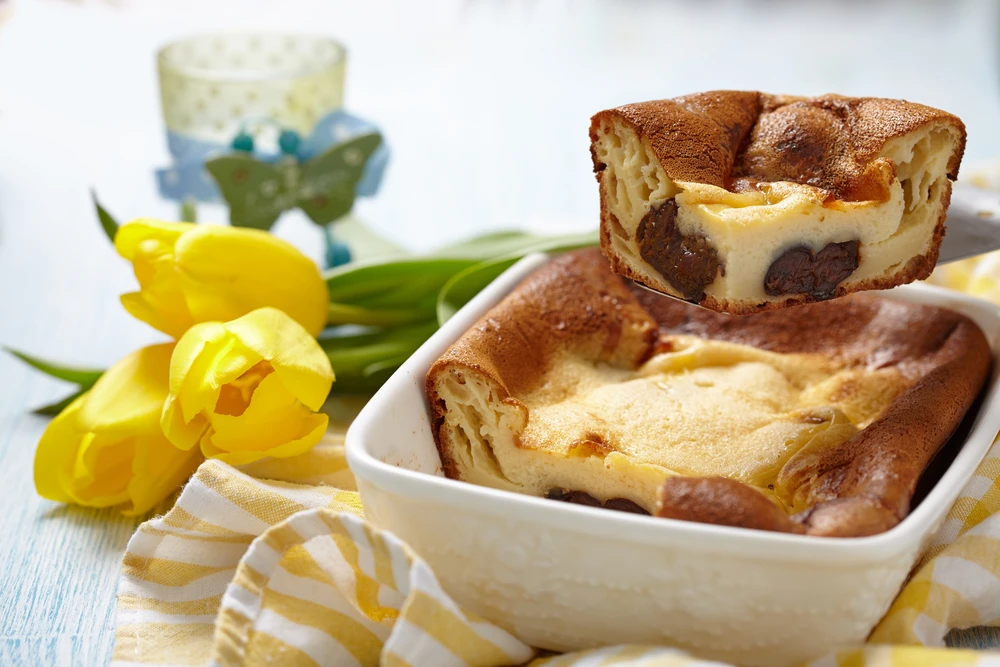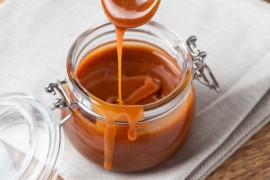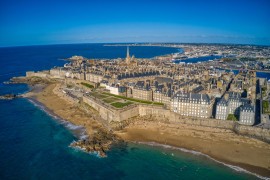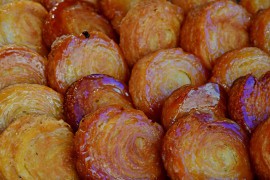What is far breton?
It's a traditional Breton sweet cake. Here, "far" comes from the Breton language and means "wheat" or gruel. In Breton, to speak of Breton far, we say "farz forn", in other words, oven cake. It can be compared to a kind of clafoutis, only denser, with prunes instead of fruit. The current recipe, with prunes, originated at the end of the 19th century, when the Bretons, who fished cod in the Atlantic, went to sell it in the port of Bordeaux and took advantage of the opportunity to buy Agen prunes, which were exotic for them (and which kept for a very long time, preventing scurvy on the boats and providing the crew with vitamin C).
There are traces of older recipes, but they were not sweetened. It was a kind of solid baked oatmeal served salted with bacon or fish.
A far breton ready to be eaten / Photo chosen by monsieurdefrance.com: asimojet via depositphotos.com
Recipe for Far Breton :
Ingredients:
Serves 6/8
- 4 large eggs
- 1 liter whole milk
- 30 grams semi-salted butter (we're in Brittany!)
- 250 grams sugar
- 250 grams wheat flour
- 400 grams prunes
- 1 little salt
- 10 Cl rum (optional but better).
Far breton. Photo chosen by monsieurdefrance: depositphotos.com
The process:
- Start by preheating your oven to 220°C / Thermostat 7.
- Wash your prunes and leave them in the water (they'll swell up a bit, which is good).
- Mix flour and sugar, add a pinch of salt.
- Make a well
- Add the 4 eggs and mix
- take a whisk and whisk the milk into the mixture, finishing with the rum (there should be no lumps).
- Butter your dish well
- Arrange the prunes fairly evenly.
- Pour the dough
- Bake for 20 minutes at 220 °C
- Continue cooking for 30 minutes at 180°C / Thermostat 6.
TIPS
To check doneness, plunge a knife blade into it when it's golden. If it comes out dry, it's done. Traditionally served warm with a little cider (in a bowl).

